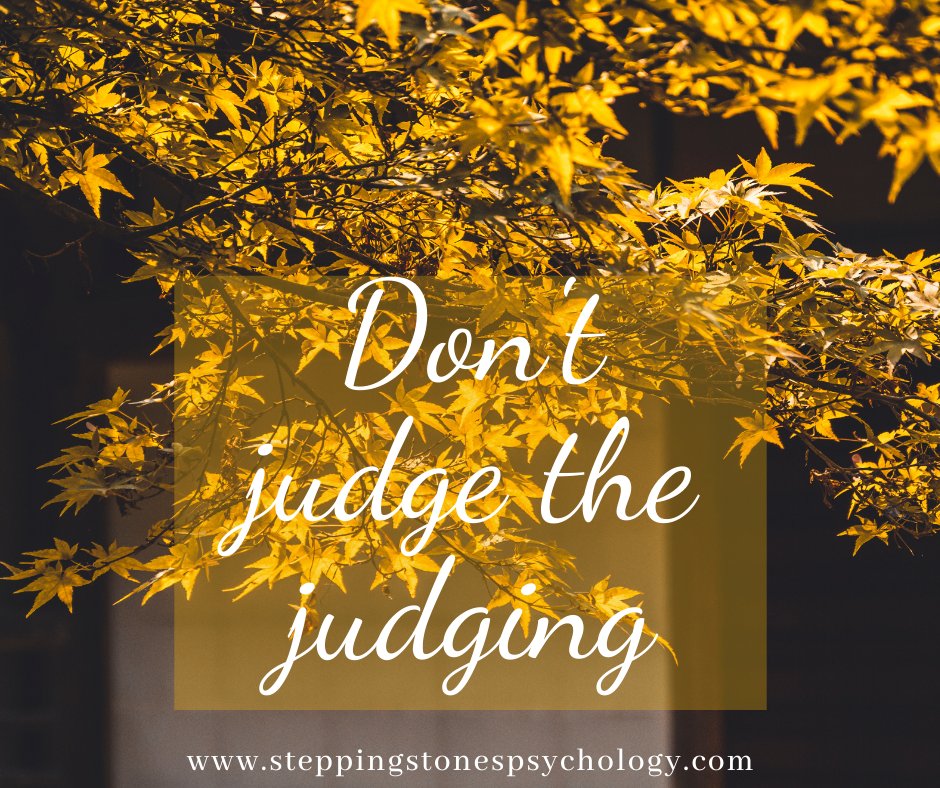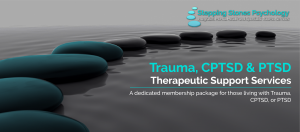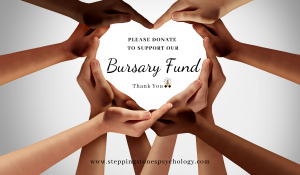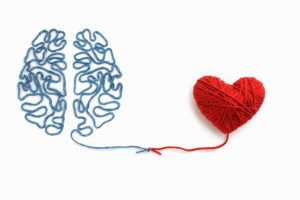By Sharmi Gowri-Kriszyk
Have you ever struggled to feel connected to your body? Have you struggled to notice what is happening inside your body? Found it difficult to engage with mindfulness, meditation or yoga? Or perhaps you are able to engage with these practices or embodied techniques, and notice a positive shift, but you are unable feel the benefits last long? At other times you can’t engage with it at all? Do you struggle to offer self-compassion? Or, maybe you are instead hearing the voice of your inner critic? Perhaps you go on a spiral of judging yourself? Maybe you tend to walk on a dark journey of self-loathing? I know that it can feel so real and very hard to break free from.
As you may know, I recently led a 6-weeks ‘Embodied Trauma Healing’ series, facilitated by a number of different clinicians and practitioners who all specialised in trauma work. The final session was led by the lovely and wholesome, Tony Buckley, recommended to us by Dr Pat Ogden herself. In his session, which Tony facilitated as an ambassador for the Sensorimotor Psychotherapy Institute (SPI), he offered psycho-education and techniques derived from Sensorimotor Psychotherapy. It was an absolute honour to have the opportunity to witness his teaching/talk. During the session he spoke about a few things which I thought might be useful to share with followers of my page and groups.
All of the following information is based on Somatic Psychology and other somatic approaches to trauma healing, however they are mainly based on the work by Peter Levine (founder of Somatic Experiencing (SE)) and Pat Ogden (Founder of SPI).
According to the psychologist Pierre Janet, our body has to release what it started when traumatic things happened to us. These could be situations where there was an intrusion, or we may have been tricked or outnumbered. Perhaps, we were manipulated. Something happened which, in one way or other, overwhelmed our nervous system. Something disabled our defences; however it is never our fault – whether we were a child, teenager or adult when this happened. What we tend to do though is blame and shame ourselves, as if it is our fault. That is because we think that we had a choice when these traumatic events occurred. The reality though, is that there was never a choice. It was automatic and unconscious, and from a nervous system perspective, it was autonomic. A system which is not about thinking; it is about survival.
Your reaction was based on what was the best way to survive in that specific moment. In therapy or therapeutic interventions using somatic approaches, you can find the other missing reactions; you can find the one you did not get to have when the traumatic incident took place. This is something I offer to my clients in their therapy through various somatic approaches, including the Integrative Trauma and Attachment Treatment Model (ITATM)®. The latter is a model in which I was trained in by the Attachment and Trauma Treatment Centre for Healing (ATTCH) and it combines elements of various specialist trauma treatment approaches.
These reactions you have may hold power and energy that you would have been carrying internally with you for so many years, and they can be preventing you from living your life to its fullest potential. Through this type of therapeutic work, you will be guided to find ways of releasing the reactions (including the energy and power mentioned earlier) through the use of titrations and other gentle trauma-sensitive therapeutic methods. You will be supported to do it safely, gradually and mindfully. One of the techniques used to do this, is based on ‘An act of triumph’, which is a term coined by Pierre Janet; also used in both SE and SPI. It facilitates trauma healing where the body needed to engage in an act of defence or a way of protecting itself when the traumatic moment occurred, but could not, as that would not have been safe at that specific time. This piece of work helps you to find the missing experience and expels that energy. Often it is a strong energy, characterised by shaking, tension, rage, anger, primal screams or a big cry. It allows us to see that we don’t need to be afraid of our own rage or whatever other big emotions and strong reactions that resulted from our trauma and that we are unnecessarily still judging or shaming ourselves for.
We often judge ourselves for all of those reactions and emotions that we carry. We judge ourselves for our resistance, our disengagement or disconnect. Tony very beautifully explained and highlighted why we must not judge our reactions and instead embrace them with self-compassion. His words reminded me of the work by the wonderful Dr Gabor Maté, which I have followed for years and been very inspired by; especially when it comes to my work with addiction. I can strongly recommend his books to any trauma survivors out there who are suffering from addictive tendencies.
Tony explained that one of the biggest problems we have is that we end up judging our own reactivity. We become our own worst enemies. Instead, we could aim to befriend our symptoms and our difficulties. They are there for a reason, and they are not intentionally trying to give us a hard time. Their plan is our safety, wellbeing and survival. It is just that our body and mind have some talking to do about what constitutes a risk to our survival. Today versus Yesteryear: Those reactions which served a purpose back then may no longer serve us a purpose in the present. Instead, they may hinder our growth and healing. So that journey happens with finding some empowerment in our body, and part of that process is to release trauma held in our body. This includes releasing those sensory and sensational experiences trapped from the time we experienced the trauma.
Therefore, try to turn every moment where you judge your worst reaction into a moment where you are having compassion with yourself. Judging is what keeps us stuck from moving forward in our healing journey. Disliking these parts of yourself is what keeps you stuck in a cycle. You have to honour these defences, but then to know that their job is done. You have to honour them, not fight them, nor hate them. They are your friends, whether you know it or not. They are your friends because they helped you survive. They kept you alive.
One of my favourite parts of the session was when one of the participants asked Tony if he had a top tip on what they can do when they are stuck in a state of judging themselves. How to stop judging yourself, basically.
Tony’s response may help you when you judge yourself. This could be perhaps for your reactivity, for being triggered, or even for your resistance..? Perhaps, for your shame and self-hatred. His response may help you when your inner critic starts to speak to you, or when you start spiralling down the self-loathing journey.
He explained that this may be hard to convince yourself, but that his top tip was to not even ‘judge the judging’. Otherwise, you are not only judging the reaction, but you are also ‘judging the judging’. To conclude, he also offered a gentle reminder that the judging is also another way we learned to survive (e.g. the fawn response such as self-gaslighting and self-blaming for the wrong-doing someone else did. You learned to use judgement to manage the perpetrator/abuser’s harmful behaviours). So to honour that layer: Honour that judging part too, which will all aid your post-traumatic growth and healing.
None of this is to suggest that abusive, toxic or unhealthy behaviours should just be accepted as a survival resource. Nor is it to justify abusive or unsafe behaviours. It is possible to hold two ‘opposites’ such as acknowledging and taking ownership for one’s unsafe behaviours whilst being gentle, kind and compassionate to ourselves. To summerise what I wrote in one of my recent blogs:
“Having certain survival resources or having had a difficult past does not remove us from the responsibility of our behaviour. All of us have moments when our behaviours can be unhealthy, or even unsafe – towards ourselves and/or towards others. This is especially the case if we have been modelled unhealthy ways of communicating and engaging with others in our childhood and when growing up. However, we still have a responsibility to take actions to work on these behaviours, especially if they involve toxic relationships and being abusive. The more we work on ourselves, the more we become aware of when we are in these states and find ways to navigate them in healthier ways. It is an on-going process where we continue to unlearn and relearn the patterns of our behaviour. It will be a lifelong practice, which will help you create more space for self-compassion and compassion for others.”
For more trauma-informed and trauma-sensitive resources, please join my free Facebook group: https://www.facebook.com/groups/PTSDandTraumaSupportPackage and my Facebook page: www.facebook.com/steppingstonespsychology
Other resources:
Specialist Trauma Therapeutic Services: To find out more about the trauma-informed therapeutic services offered by Stepping Stones Psychology, please follow this link: https://steppingstonespsychology.com/events/
Specialist Trauma Therapy: To find out more about specialist trauma therapy by Stepping Stones Psychology, please follow this link: https://steppingstonespsychology.com/specialist-trauma-therapy/
Dedicated Membership for Trauma Survivors: https://steppingstonespsychology.com/membership-for-trauma-survivors
Trauma Support and Research: This group involve research and resources, including some excellent trauma-informed blogs. https://www.facebook.com/groups/2348717965433957 This group is run by Trauma Research UK & Ireland
Vision & Mission of CPTSD & PTSD Research UK: Trama Research UK & Ireland (formerly known as CPTSD & PTSD Research UK) is found by Nic Jonwik Strang, and you can read more about her story, vision and mission here: https://blog.ptsdresearchuk.co.uk/2020/06/about.html This is the Facebook page of Trauma Research UK & Ireland: https://www.facebook.com/Traumaresearchireuk
©2020 Stepping Stones Psychology. All Rights Reserved




